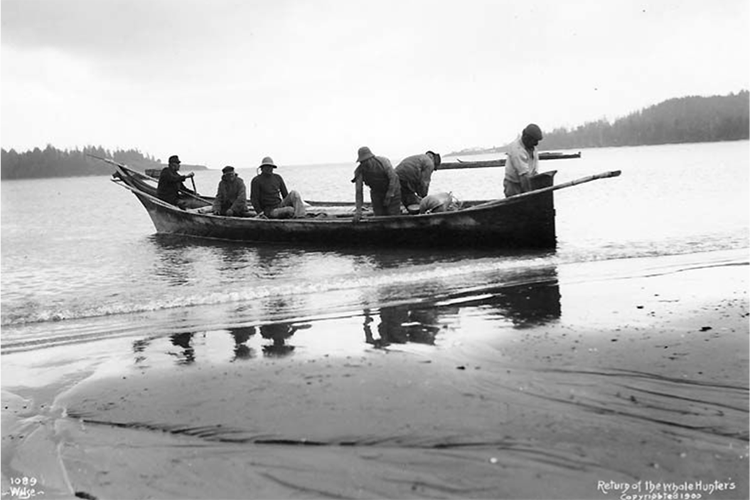
- Details
- By Native News Online Staff
NOAA Fisheries announced the final rule and decision to grant the Makah Tribe a waiver from the take prohibitions in the Marine Mammal Protection Act (MMPA). This waiver provides for a limited subsistence and ceremonial hunt of Eastern North Pacific gray whales in accordance with the Treaty of Neah Bay of 1855 and quotas established by the International Whaling Commission (IWC). This waiver authorizes the Makah Tribe to resume hunting up to 25 Eastern North Pacific gray whales over a 10-year period in U.S. waters.
Prior to a hunt, NOAA Fisheries and the Tribe must enter into a cooperative agreement under the //uscode.house.gov/view.xhtml?path=/prelim@title16/chapter14/subchapter2&edition=prelim#" style="box-sizing: border-box; background-color: transparent; color: rgb(51, 122, 183); text-decoration: underline;">Whaling Convention Act, and the Tribe must apply for and receive a hunt permit. The final rule includes time and area restrictions, harvest limits, low population thresholds, restrictions on the use of gray whale parts and reporting and monitoring requirements.
This waiver will allow the Makah Tribe to use the quota which has in past years been transferred to Russia. No more than 2-3 whales may be hunted each year by the Tribe in U.S. waters. In addition, NOAA Fisheries will maintain adaptive management strategies to ensure the protection of endangered Western North Pacific gray whales and the Pacific Coast Feeding Group of Eastern North Pacific gray whales.
On September 23, 2021, the judge’s recommended decision was transmitted to NOAA Fisheries along with the hearing transcript and other required documentation. These documents — and public comments on them — informed the agency’s final decision on the Makah Tribe’s waiver request.
More information about the Makah Tribe’s request for a limited waiver of the Marine Mammal Protection Act moratorium on take of gray whales — including a flowchart — is available on the NOAA Fisheries’ website as well as a historical chronology leading up to this milestone.
More Stories Like This
Navajo Resources and Development Committee Issues Notice on Livestock Inspection RequirementsAmerican Prairie, Tribal Coalition Files Protest Over Rescinded Grazing Rights
Northern Cheyenne Push Back Against Trump Administration’s Effort to Alter Little Bighorn History
Florida Man Sentenced for Falsely Selling Imported Jewelry as Pueblo Indian–Made
Navajo Nation Declares State Of Emergency As Winter Storm Threatens Region
Help us defend tribal sovereignty.
At Native News Online, our mission is rooted in telling the stories that strengthen sovereignty and uplift Indigenous voices — not just at year’s end, but every single day.
Because of your generosity last year, we were able to keep our reporters on the ground in tribal communities, at national gatherings and in the halls of Congress — covering the issues that matter most to Indian Country: sovereignty, culture, education, health and economic opportunity.
That support sustained us through a tough year in 2025. Now, as we look to the year ahead, we need your help right now to ensure warrior journalism remains strong — reporting that defends tribal sovereignty, amplifies Native truth, and holds power accountable.
 The stakes couldn't be higher. Your support keeps Native voices heard, Native stories told and Native sovereignty defended.
The stakes couldn't be higher. Your support keeps Native voices heard, Native stories told and Native sovereignty defended.
Stand with Warrior Journalism today.
Levi Rickert (Potawatomi), Editor & Publisher


